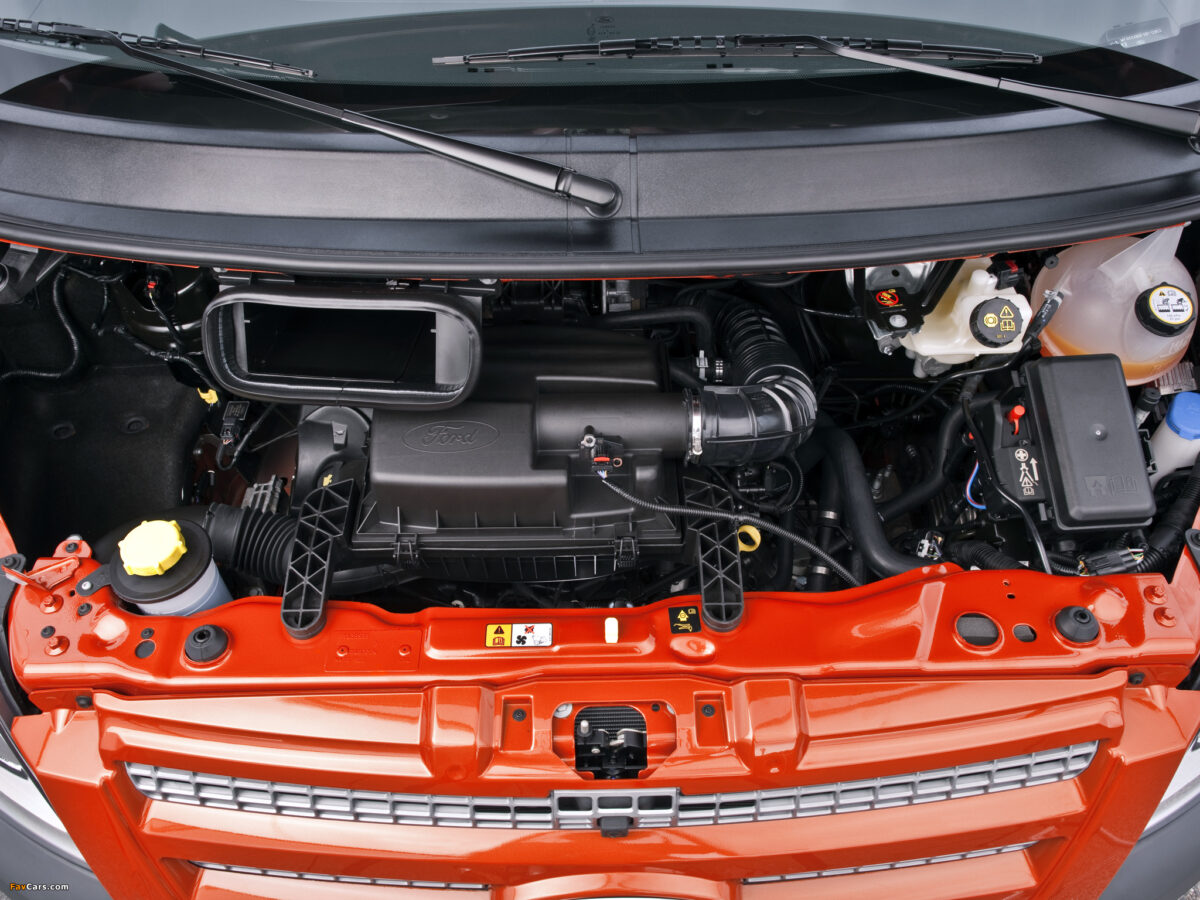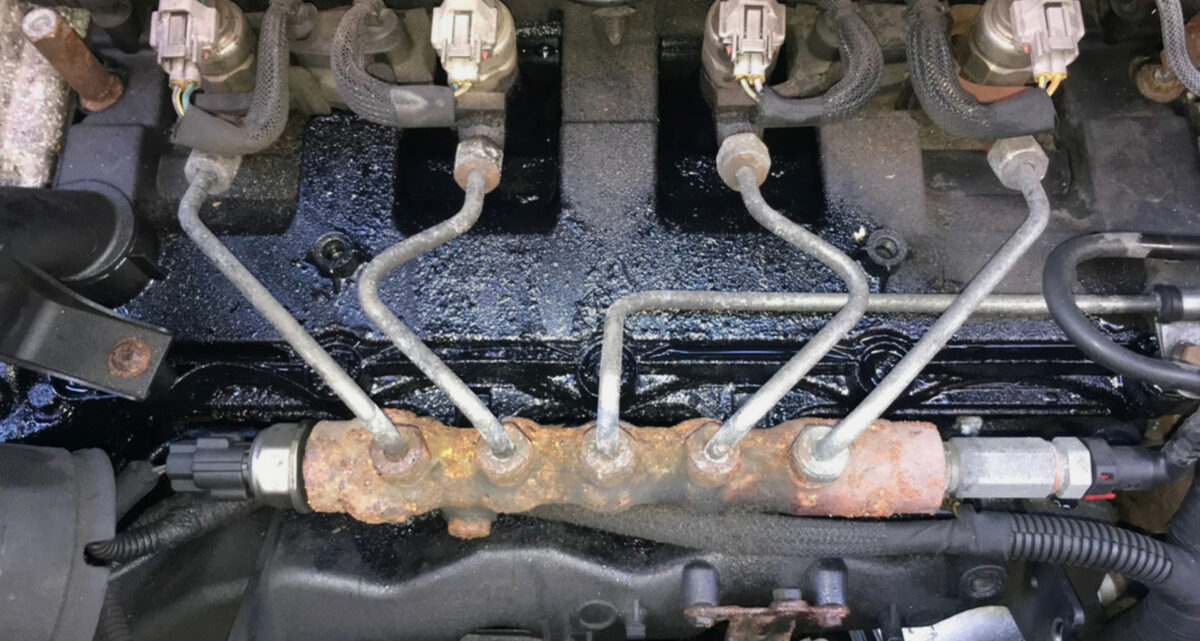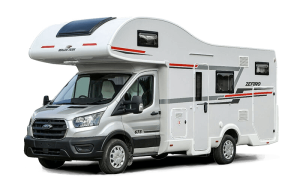Identifying Mechanical Problems in Ford Transit MK7
Common Issues with a Ford transit MK7: The Ford Transit MK7, known globally as a reliable and durable workhorse, may encounter few mechanical issues as they age. Those issues can range from simple fixes like replacing a bulb to more complex tasks like diagnosing a transmission failure. Despite the rigorous quality checks and high manufacturing standards, no utility vehicle is immune to occasional mechanical concerns. It is important to have a basic understanding of common mechanical problems to ensure the longevity of your van.
One frequent complain among Ford Transit MK7 owners concerns the engine, with symptoms such as excessive oil consumption, engine overheating, noise, and reduced performance levels. On the other hand, transmission-related issues also pose as recurrent challenges. These typically manifest as harsh shifting, delayed engagement, gear slippage, and even complete failure. It is worth noting that correct diagnosis at an early stage can prevent costly repairs and prolong the life of your Ford Transit MK7.
● Engine Problems in Ford Transit MK7:
○ Excessive Oil Consumption: This is one of the most common issues faced by owners. The engine tends to use more oil than it should, leading to frequent top-ups and potential damage if not addressed promptly.
○ Overheating: Another prevalent problem is the overheating of the engine. This can be due to a faulty radiator, coolant leaks or a malfunctioning water pump.
○ Noise from Engine: Unusual noises coming from the engine could indicate problems with its components such as worn-out bearings or damaged pistons.
○ Reduced Performance Levels: A noticeable drop in performance levels might suggest issues with fuel supply, exhaust system or ignition.
● Transmission-related Problems in Ford Transit MK7:
○ Harsh Shifting: Difficulty while shifting gears can be an indicator of transmission trouble. It may arise due to low transmission fluid level, worn out gear synchros or internal damage within the transmission system.
○ Delayed Engagement: If there’s a delay between shifting the gear and car movement, this could point towards serious transmission problems that need immediate attention.
○ Gear Slippage: When your vehicle slips out of gear without any input from you, it’s often symptomatic of underlying mechanical issues like worn clutch plates or broken bands inside your gearbox.
○ Complete Failure: In some cases, complete failure might occur where no power gets transmitted from the engine to wheels despite running motor.
In conclusion, being aware of these common mechanical concerns and their early symptoms can help prevent major repairs down line. Regular maintenance checks and timely intervention when needed will ensure that your Ford Transit MK7 continues serving reliably for many years ahead.
Troubleshooting Engine Issues in Ford Transit MK7

The heart of any vehicle, including the Ford Transit MK7, is its engine. Unfortunately, like other vehicles, this model is not immune to engine problems. Owners have often reported issues such as overheating, excessive smoke, and even a decrease in power. All these symptoms require immediate attention as ignoring them can lead to serious mechanical damage.
When it comes to diagnosing these engine issues, it usually involves a process of elimination. Thermostat problems, blocked radiators, or damaged water pumps could cause overheating. If there’s an observable amount of excessive smoke, the issue might be attributed to incorrect fuel/air mixture, worn piston rings, or valve seals. A decline in power could be caused by numerous factors such as dirty air filters, bad spark plugs, or even a failing fuel pump. Each of these possible causes requires a different line of action, reaffirming the importance of diagnosing the issue accurately.
Addressing Transmission Challenges in the Ford Transit MK7
Recognising and finding solutions for transmission problems in a vehicle as sturdy as the Ford Transit MK7 can be a real challenge. However, this does not make it an insurmountable task. Familiarity with common symptoms of transmission malfunctions can assist in early detection and avoidance of costly repair, while adhering to routine maintenance schedules ensures longevity and optimal performance.
Manual or automatic, the transmission is a vital part of the Ford Transit MK7, designed to shift gears and provide power to the wheels from the engine. For manual transmissions, rough shifting or gear slipping could be a sign of clutch wear. This commonly manifest as difficulty in changing gears or a momentary loss of acceleration. In automatic transmissions, a delay in vehicle movement despite revving the engine, or a sudden surge in speed without pressing the accelerator may signal transmission issues. In either case, having a professional perform a diagnostic test can help identify the problem and apply the appropriate solution.
Brake System Concerns for the Ford Transit MK7
Brake system issues for the Ford Transit MK7 can quickly escalate if left unattended. Regular inspections and timely maintenance are vital for safe operation as brake failure can lead to catastrophic outcomes. Drivers often report a spongy brake pedal feel or reduced braking efficiency, which may be attributed to worn brake pads or issues with brake fluid. Moreover, strange noises or vibrations while braking, boiling brake fluid, and unusually hot brake components are telltale signs of problems.
Corrosion is another significant concern when it comes to the brake system in the Ford Transit MK7. Rust can affect the brake lines, resulting in fluid leaks and compromised braking performance. Corroded callipers may cause the brakes to drag, implying the brakes aren’t fully releasing after the brake pedal is let go. These issues not only jeopardise safety but also negatively impact vehicle performance and fuel efficiency. Regular checks and preventative maintenance are key to addressing these potential problems.
Dealing with Electrical System Glitches in Ford Transit MK7

The Ford Transit MK7, though known for its robust engineering and impressive service life, isn’t entirely immune to complications. One common issue that owners may encounter is electrical system glitches, which can range from minor inconveniences to major problems that affect the vehicle’s overall performance.
Electrical system glitches typically manifest through different ways like dimming headlights, malfunctioning power windows, or even a failing ignition. Diagnosing these issues requires a thorough understanding of the vehicle’s electrical layout and knowledge of standard troubleshooting methods. An understanding of potential problem areas, such as worn wiring or a faulty alternator, can assist in precisely pinpointing the cause of the malfunction.
Ford Transit MK7 Fuel System: Recognising Potential Problems

Evaluating the Ford Transit MK7 fuel system for potential issues is an integral aspect of maintaining vehicle performance. A common problem to start with is fuel leakage, which occurs due to damaged fuel lines or a cracked fuel tank. This issue can present a serious fire hazard, a sharp drop in fuel efficiency, and noticeable fuel smell around the vehicle. Fuel pump issues are another frequent sight in Transit’s MK7 models, with symptoms like power loss, engine surges, or even total engine failure in extreme cases.
Improper fuel pressure can also manifest in a multitude of ways in the MK7. Poor acceleration and engine performance decline are common red flags. If you notice revving the engine doesn’t translate into a proportional increase in speed, that’s a clear sign something is problematic in the fuel system. Furthermore, if the vehicle tends to stumble or stall during operation, a clogged or malfunctioning fuel injector could be the likely culprit. Regular professional inspections can hence prevent such problems from escalating, keeping your vehicle in optimal condition.
Suspension and Steering related Issues in Ford Transit MK7
Owners of the Ford Transit MK7 should be aware that this vehicle may suffer from suspension and steering related issues. One common issue is the weakening or failure of the front struts, causing the vehicle to sag or the front tires to wear unevenly. This not only negatively impacts handling and ride comfort but can also substantially increase tire replacement costs over the life of the vehicle. More serious suspension problems like sudden snaps and cracks may point to underlying issues in the suspension system needing immediate attention for safety reasons.
A related issue to look out for in the Ford Transit MK7 pertains to the steering system. Many owners have reported problems with the power-assisted steering, which can become excessively stiff or unresponsive. This problem can make the van considerably harder to handle, especially in tight spaces or when making sharp turns. Additionally, a moaning noise from the steering pump or difficulty in keeping the van straight on highways often hints at latent steering system problems. Regular check-ups and maintenance are advisable to ensure these problems do not escalate into significant safety issues.
Heating and Cooling System Woes in Ford Transit MK7
One of the common issues seen in Ford Transit MK7s is the malfunctioning of the heating and cooling system. The cause behind this inconvenience often lies in a faulty thermostat, a worn-out water pump, or a damaged radiator fan. The driver and passengers may experience irregular temperature fluctuations in the cabin. There are instances where a sudden drop or increase in temperature can be related to radiator hose leaks, which reduces the overall efficacy of the cooling system.
Aside from discomfort during commutes, the irregular functioning of the heating and cooling system can also impose threats to the vehicle’s overall health. Overheating, for instance, could cause severe damage to the engine. In some cases, a blocked or leaking heater core could be the hidden culprit. It further emphasizes the importance of regular inspection and maintenance of these systems in your Ford Transit MK7. By promptly identifying and addressing these potential problems, you can ensure both the longevity of the vehicle and comfort during your journeys.
What are the common mechanical problems in the Ford Transit MK7?
The common mechanical problems in the Ford Transit MK7 include engine failure, problems with the transmission, braking system failures, electrical glitches, and fuel system issues.
How can I troubleshoot engine issues in my Ford Transit MK7?
You can troubleshoot engine issues in your Ford Transit MK7 by checking for any warning lights on your dashboard, listening for unusual noises, and checking for leaks. If you still can’t identify the problem, it’s best to take your vehicle to a mechanic.
What are the common transmission challenges in the Ford Transit MK7?
The common transmission challenges in the Ford Transit MK7 include problems with gear engagement, delayed response when shifting gears, and unusual noises when in neutral.
What should I do if I have brake system concerns in my Ford Transit MK7?
If you have brake system concerns in your Ford Transit MK7, you should get them inspected and repaired as soon as possible. Common issues include squealing noises, a spongy brake pedal, and the vehicle pulling to one side when braking.
How do I deal with electrical system glitches in my Ford Transit MK7?
Dealing with electrical system glitches in your Ford Transit MK7 can involve checking the battery, the alternator, and the electrical connections. If the problem persists, it’s advisable to consult a professional mechanic.
How can I recognise potential problems in the Ford Transit MK7 fuel system?
Potential problems in the Ford Transit MK7 fuel system can be recognised by a decrease in fuel efficiency, the smell of gasoline inside the car, or difficulties starting the engine.
What issues might I face related to the suspension and steering in my Ford Transit MK7?
Issues with the suspension and steering in your Ford Transit MK7 might include difficulty turning the steering wheel, unusual noises when driving over bumps, or the vehicle pulling to one side.
What are the common heating and cooling system malfunctions in the Ford Transit MK7?
The common heating and cooling system woes in the Ford Transit MK7 include a non-functioning heater or air conditioner, an overheating engine, or unusual smells coming from the air vents.



